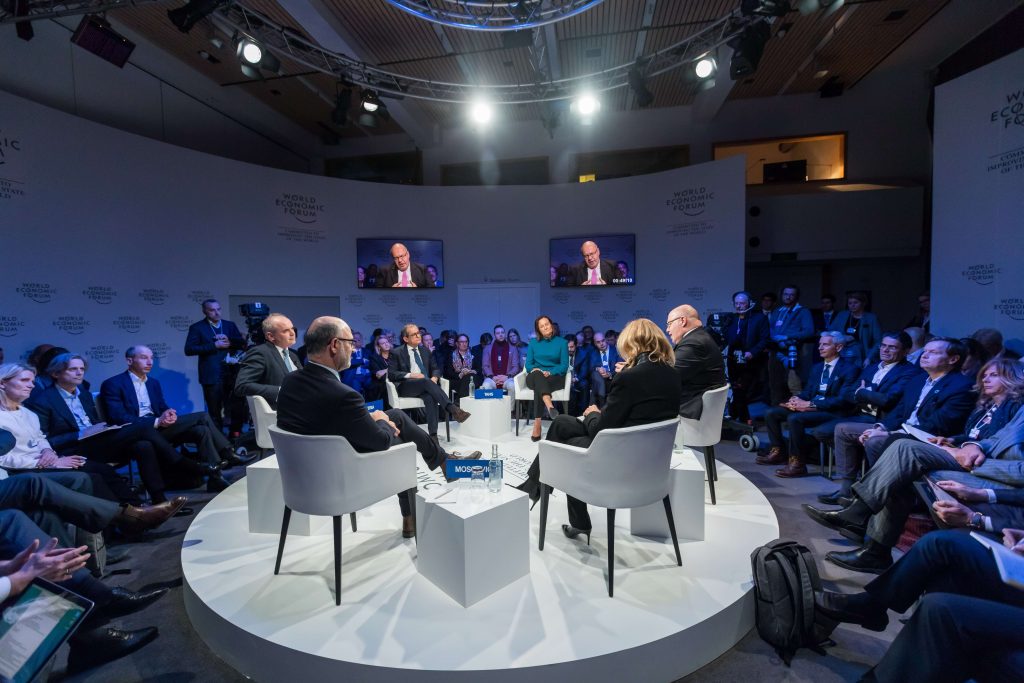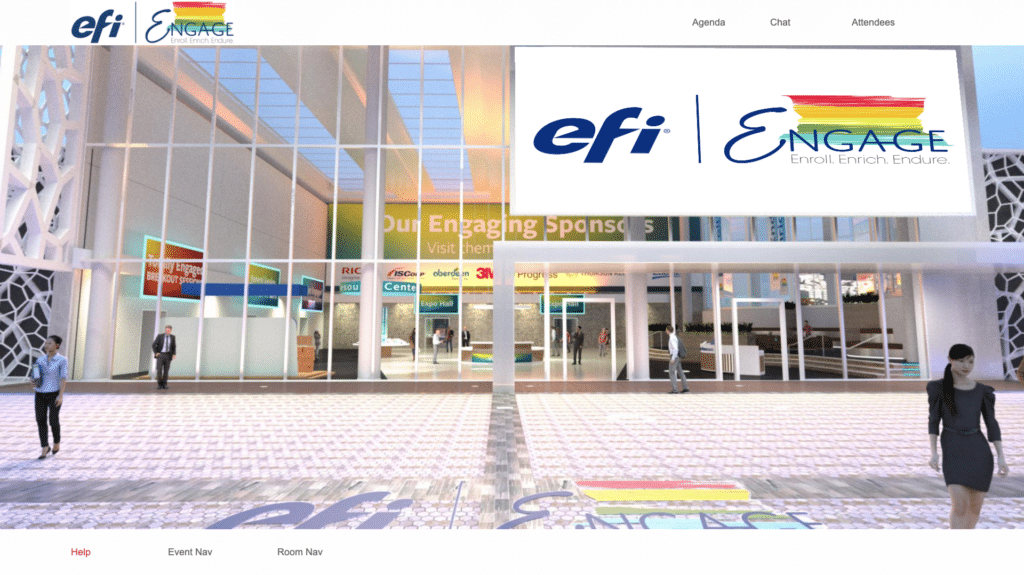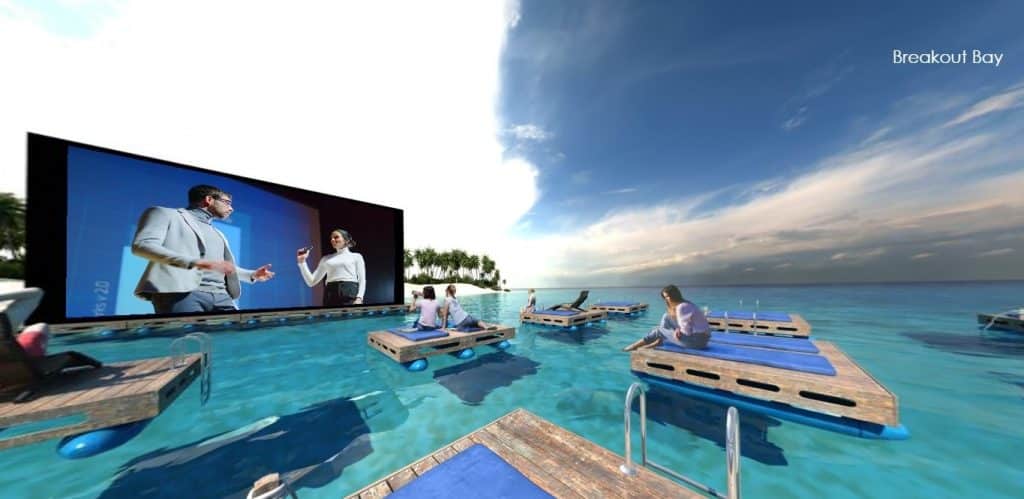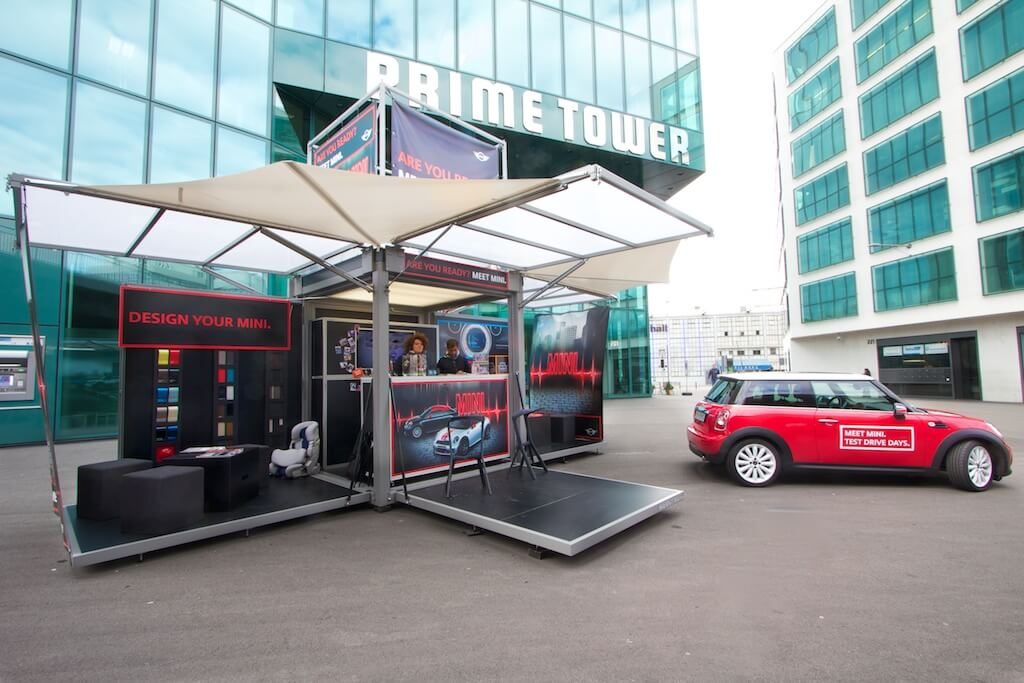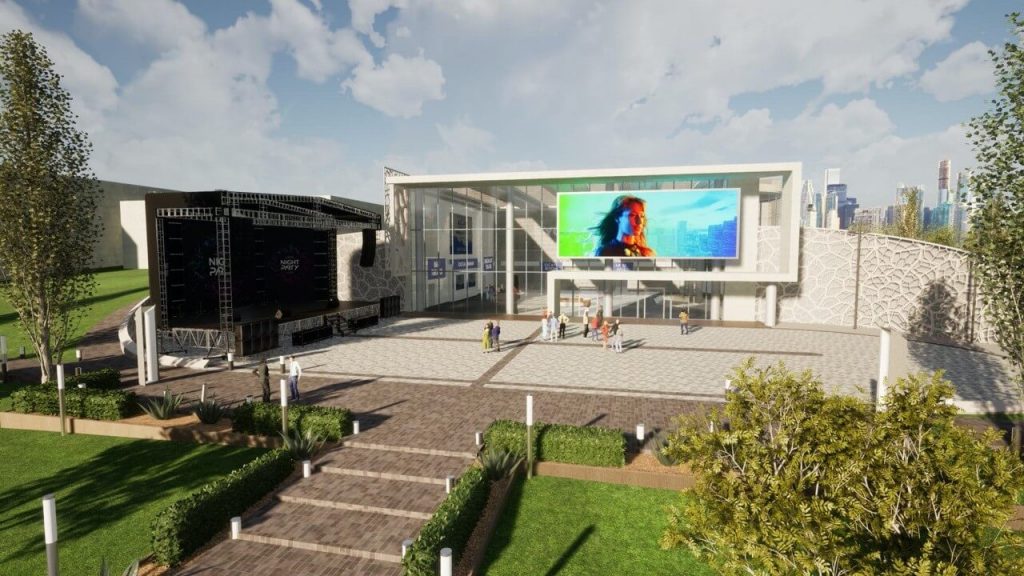The events industry has seen some massive changes over the last two years. By the end of February 2020, most live events had been canceled or postponed for the year. Some live events made a return in 2021, and the events industry as a whole is in a strong position. That’s thanks in part to the innovative virtual and corporate event trends that have kept the industry ticking even while live events were off the menu.
Many of the changes we’ve seen in the industry were already in the cards, but that process would have been more organic, and less urgent, than it has been in reality. Virtual and hybrid events were only a small part of the industry prior to 2020. The pandemic greatly accelerated the pace at which these events rose to prominence.
There were some standout early successes during this time, and, in some cases, event organizers pulled these off with very little time to prepare. One notable example is that of the high-end commercial printing company EFI, a global industry leader with over 20 million global users of its printing and productivity software services.
EFI’s annual conference is held every year in January. For 2021 the company had to take a different tack than usual and transition to a virtual format. Like many other companies in the same situation, EFI had virtually no experience with online events. But they did have the ProGlobalEvents team and XtendLive’s virtual 3D event platform.
For EFI, we created an eight-day event experience in a 3D venue located in a virtual version of the San Francisco Bay. The venue included:
- A general session theater
- Breakout spaces
- An Expo Hall
Attendees could explore all these spaces as if they were physically there. The event featured over 450 live video sessions, so we designed a calendar-syncing agenda that attendees could personalize for themselves. Over 1,000 people from more than 50 different countries attended the event.
That early success was just the start. The world of virtual events has taken off in the last two years, evolving to meet the needs of event professionals and attendees alike.
Case Study: EFI
Virtual Events Are Happening En Masse, Especially in the Corporate Sphere
The most notable, most obvious trend in virtual events is just the sheer number that have happened in the last two years. This has been an especially visible corporate events trend, largely because most companies have allowed employees to work from home, whenever it was possible to do so. For some, it’s been a temporary change; for others, a permanent one. Many have split the difference and developed schedules that allow employees to work from home part of the time, with scheduled in-office hours.
The end result has been a massive increase in the use of virtual meeting platforms. In one survey on corporate event trends in the virtual sphere, respondent companies noted an increase in virtual meetings of 290% between 2019 and 2020.
- The average company held 32 virtual meetings in 2019 and 125 virtual meetings in 2020.
- Ninety-three percent of companies held at least 1 virtual meeting in 2020, compared to 51% in 2019.
- Sixty percent planned to start holding hybrid meetings in 2021. Of those, 32% said their companies would consider multi-venue hybrid meetings.
Virtual Event Platforms and 3D Event Environments
Before 2020, far fewer people were attending virtual events, much less on a regular basis. For most, their virtual event attendance was limited to the occasional webinar or videoconference. Almost overnight, web conferencing in particular experienced a huge boom, with one major platform—Zoom—getting most of the new business. Zoom went from 10 million daily participants in December 2019 to 200 million in May 2020 to 300 million in June 2020.
Dedicated virtual events platforms soon began to appear, boasting features that went beyond video conferencing and webinars. These platforms include not just livestreaming and video conferencing but also features designed to boost attendee engagement, plus the ability to gather and analyze vast amounts of user data.
These platforms offer a user experience that’s much the same as using a website. However, the virtual events industry continues to evolve, and the next phase of development has seen the introduction of 3D event environments and production studios. Learn more about 3D virtual studio production here.
Moving Towards the Hybrid Event Format
Some elements of traditional in-person events, such as networking, are feasible online but don’t always have the same impact. Then there are things like LG Global’s video wall or Google’s multistory playground installation, both of which got plenty of press at CES in 2019. While 3D environments can provide some amazing spectacles, it’s still hard to compete with the experience of attending a live event.
With the advent of hybrid events, it’s no longer necessary to choose—or to compete. With the hybrid event format, attendees can attend in person or online, giving them the ability to curate their own event experience according to what they prefer. Hybrid events combine the advantages of both the live and virtual formats and are accessible to everyone. The hybrid format has huge potential, and it’s likely to become an extremely popular event format.
Is a Hybrid Event Right for You?
What Virtual Event Trends Are in Store for 2022?
The events industry is less predictable now than it has been in the past. Despite the uncertainty, there are some clear trends developing and exciting innovations in store.
Live Events Are Back (but Virtual and Hybrid Are Here to Stay)
Live events are slowly making a comeback, but virtual and hybrid events aren’t going anywhere. They’ve proven their worth and are no longer considered a second-best alternative to physical events. The events industry has so much more to offer now, with both virtual and hybrid events on the table, in addition to the live format.
Heading into 2021, 71% of event planners planned to continue growing their virtual audiences, even after live events started to return. And 67% of event professionals said they thought hybrid events would become more important than live events.
This change isn’t just about the pandemic. Virtual and hybrid events can help the events industry start to address sustainability issues—things like the environmental cost of air travel and waste reduction. According to one estimation, converting an event from live to virtual could reduce that event’s contribution to climate pollution by up to 98%.
The Hybrid Event Model Continues to Evolve
The events industry isn’t static—it’s constantly changing. One aspect of this will be the evolution of the hybrid event model, which has already seen plenty of change in 2021. Hybrid events are all about flexibility, as seen at the IACC’s 2021 Americas Connect conference. At this event, the IACC developed a new approach it calls “multiPODs.” This involved replacing its single large conference with a series of smaller events, held at the same time, in several different cities. Each pod comprised its own independent event, and all the pods were linked via an online portal, allowing each pod to communicate with the others.
This approach has some big advantages:
- It allows for smaller groups, helping to reduce the potential spread of illness.
- It cuts down on air travel and accommodation costs by allowing more people to attend a pod closer to home.
- Thanks to the online element, it lets people interact with the larger group and allows event-wide collaboration.
As the hybrid model continues to evolve, we’ll see more of these flexible configurations, where the format is modified to suit the event. A single event could potentially involve collaborative groups meeting all around the world, all linked together via the internet.
Look Ahead to More Attendee-Oriented Virtual Event Content
A 2021 virtual event study from Bizzabo notes that only 42% of virtual event attendees watch a full session—meaning more than half stop watching before the end. The average session is 54 minutes long, and attendees are engaged for only 68% of it. This demonstrates one of the biggest drawbacks of virtual events: the potential for poor attendee engagement.
Engagement is of prime importance for all kinds of virtual events. It’s of particular concern in the corporate world too, as it’s a key reason why many companies are reluctant to hold virtual and hybrid meetings. In one survey, 65% of the companies surveyed said they would like to hold more hybrid meetings, but 55% said they were hesitant due to concerns about engagement.
That low engagement risk doesn’t have to be realized, and the problem doesn’t necessarily lie with attendees, but with the content. If the average session is almost an hour long and attendees are engaged for around two-thirds of that time, then the answer is to shorten those sessions or schedule in a break. The optimal length is likely around 30 to 35 minutes—40 at the most—rather than that marathon 54.
For the last couple years, creating virtual event content has been more about modifying what works for live events and transitioning it into a new environment. But with more data about what works and what doesn’t, we should see virtual event content cater more to online attendees.
That means:
- Shorter sessions, with more frequent breaks
- More interactive elements that help attendees stay engaged
- Event content that’s designed with engagement in mind
The Future Is Virtual. And Hybrid.
Virtual and hybrid events have proven their worth, many times over. They’re more than just the inferior cousin of live events. They’re driving corporate event trends and event innovations that will help secure the health and longevity of the industry into 2022 and over the long term.
